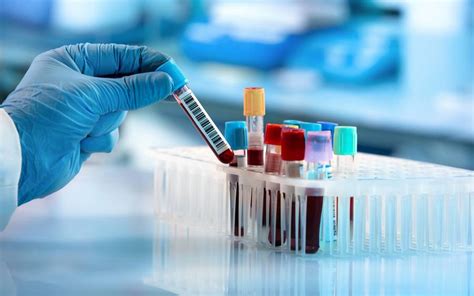Navigating the Medical Test Maze for a Canadian Visa: A Comprehensive Guide
Applying for a Canadian visa can be a complex process, and one of the key steps is undergoing a medical examination. Whether you're planning to work, study, or visit the country, understanding the medical test requirements is essential. In this comprehensive guide, we'll delve into everything you need to know about the medical test list for a Canadian visa, addressing common concerns and providing practical tips to ensure a smooth application process.
Demystifying Medical Test Requirements: Addressing Your Concerns
When it comes to medical tests for a Canadian visa, it's natural to have questions and concerns. You may wonder why these tests are necessary, what conditions they screen for, and how to prepare for them effectively. This article aims to alleviate these concerns by providing transparent information, addressing misconceptions, and offering guidance tailored to specific circumstances.
Unveiling the Medical Test List: What You Need to Know
The medical test list for a Canadian visa is designed to assess your overall health and ensure you don't pose a risk to public health or excessive demand on Canada's healthcare system. Typically, the tests include:
- Chest X-ray: Checks for signs of tuberculosis or other lung conditions.
- Blood tests: Evaluates for infectious diseases like HIV, syphilis, and hepatitis B.
- Urinalysis: Screens for diabetes, kidney function, and other issues.
In some cases, additional tests might be required based on your age, travel history, or specific circumstances.
Ensuring a Smooth Application: Practical Tips and Considerations
To ensure a smooth medical examination process, consider the following practical tips:
- Schedule your medical exam well in advance to avoid last-minute delays.
- Choose a designated medical facility approved by the Canadian government.
- Provide accurate and complete information during the examination.
- Arrive on time with your passport and other required documents.
- Be prepared to pay the medical examination fee, which varies depending on the location.
By following these tips, you can streamline the application process and increase your chances of a successful visa outcome.
In Summary: Key Takeaways for a Seamless Medical Examination
In essence, the medical test list for a Canadian visa serves as a vital step in the application process. By undergoing the required tests and following the practical guidance provided, you can navigate the medical examination with confidence, demonstrating your commitment to public health and ensuring a smooth visa application experience.
Medical Tests Required for Canada Visa: A Comprehensive Guide
When applying for a Canada visa, one of the mandatory steps is undergoing specific medical examinations. These tests help immigration officers assess the applicant's health status and ensure they pose no public health risks to Canada. Complying with these medical requirements is crucial for a successful visa application.
Types of Medical Tests Required
The medical tests required for Canada visa can vary depending on the applicant's age, purpose of visit, and immigration program. However, the most common tests include:
1. Chest X-ray: 
Assesses the condition of the lungs and identifies any abnormalities, such as infections or masses.
2. Blood Tests: 
These tests are used to evaluate various health aspects, including:
- Complete Blood Count (CBC): Measures the levels of different blood cells, such as red blood cells, white blood cells, and platelets.
- Urine Analysis: Examines the urine for signs of infection, kidney problems, or diabetes.
- Serology Tests: Detects antibodies for infectious diseases like HIV, syphilis, and hepatitis B and C.
3. Tuberculosis (TB) Test: 
This test checks for active or latent TB infection.
4. Physical Examination: 
A healthcare professional will conduct a general physical examination, including checking vital signs (blood pressure, pulse, temperature, and respiration rate), as well as inspecting the eyes, ears, nose, throat, and skin.
Where to Undergo Medical Tests
Applicants are required to undergo medical examinations at a panel physician or clinic approved by the Canadian government. These designated clinics are located in various countries, including the applicant's home country.
Cost of Medical Tests
The cost of medical tests for a Canada visa varies depending on the clinic, the tests required, and the country where the tests are conducted. Generally, the cost can range from a few hundred to several thousand dollars.
Who Needs to Undergo Medical Tests?
All applicants for temporary or permanent residency in Canada must undergo medical examinations, including:
- Applicants for work permits
- Students applying for study permits
- Family members of Canadian citizens or permanent residents
- Refugees and asylum seekers
Exemptions from Medical Tests
Certain individuals may be exempt from undergoing medical examinations, including:
- Applicants who are under the age of 18
- Applicants who are applying for a visitor visa for less than 6 months
- Applicants who are transiting through Canada
- Applicants who have a valid medical certificate indicating a permanent medical condition that makes them ineligible for immigration
Timing of Medical Examinations
Medical examinations must be completed within a specified timeframe, typically 6 months before the visa application is submitted. The results of the tests are valid for one year from the date of examination.
Refusal of a Visa Due to Medical Grounds
If an applicant's medical examination results indicate a health condition that poses a risk to public health, the visa application may be refused. However, the applicant may be granted a temporary resident permit if the condition can be managed or treated in Canada.
Conclusion
Undergoing medical examinations is a crucial step in the Canada visa application process. By fulfilling these requirements, applicants demonstrate their commitment to protecting public health and ensuring a safe and healthy environment for all Canadians.
FAQs
1. Can I choose my own doctor for the medical examination?
No, you must undergo the medical examination at a panel physician or clinic approved by the Canadian government.
2. What happens if I have a medical condition that could affect my visa application?
You should disclose any medical conditions during the visa application process. The immigration officer will assess your condition and determine if it poses a risk to public health.
3. Can I appeal a visa refusal due to medical grounds?
Yes, you can appeal a visa refusal, but the process can be complex and time-consuming. You may need to provide additional medical evidence or undergo further medical examinations.
4. How long do the medical test results take?
Typically, the medical test results take a few weeks to process. However, the timeframe may vary depending on the clinic and the complexity of the tests.
5. What should I do if I have difficulty finding an approved panel physician in my country?
You can contact the nearest Canadian embassy or consulate for assistance in finding an approved panel physician.
.